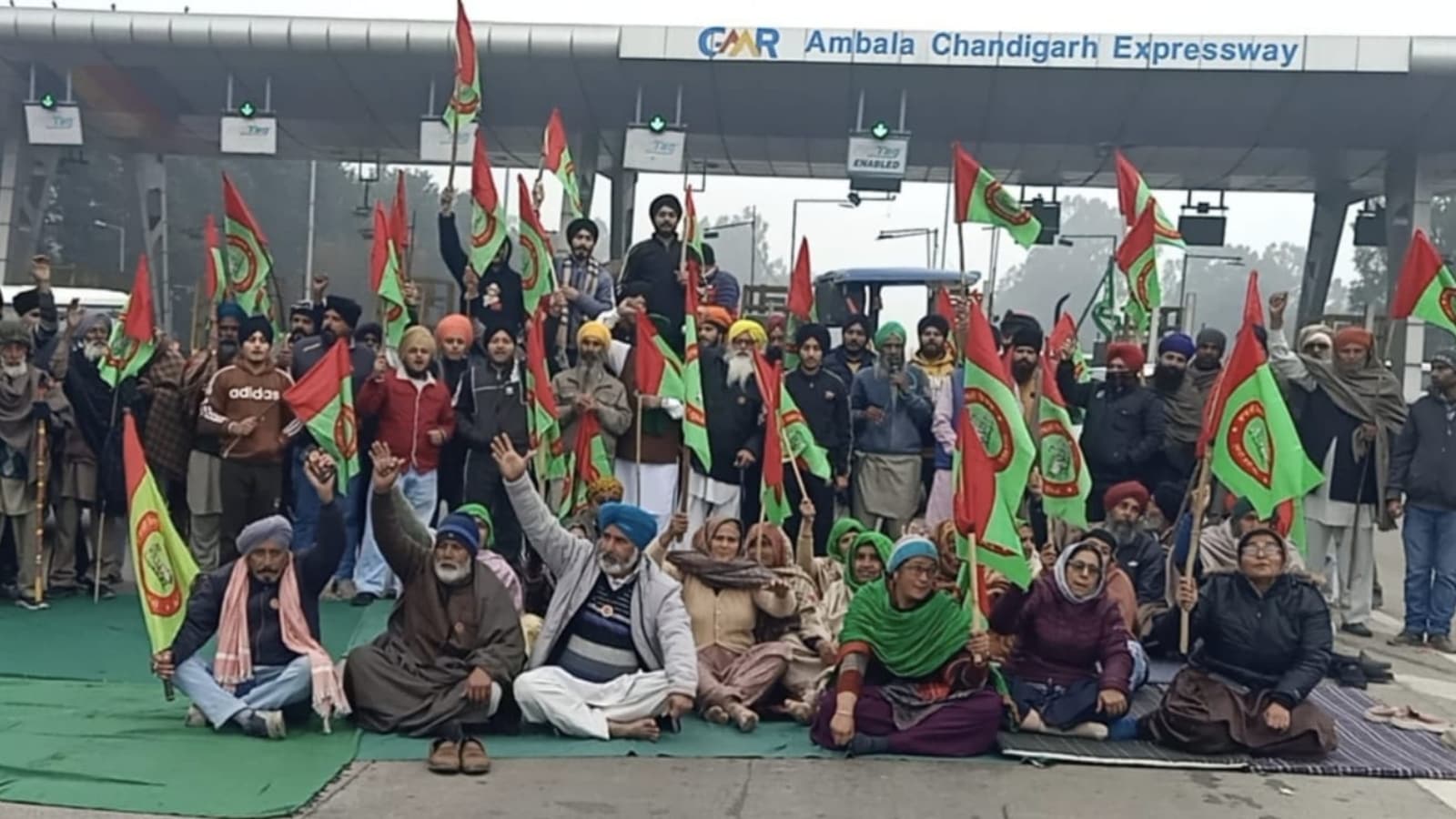 |
|
The nine-hour bandh called by the Kisan Mazdoor Morcha (KMM) and the Samyukt Kisan Morcha-Non-Political (SKM-NP) on Monday brought Punjab to a standstill. This widespread shutdown, orchestrated over demands including a legal guarantee for Minimum Support Prices (MSP), resulted in significant economic disruption across the state. Over 250 locations experienced road blockages and train disruptions, crippling transportation and impacting various sectors. The impact was far-reaching, causing losses estimated in crores of rupees for industries and lakhs for railways, as 172 train services, including the Vande Bharat, were cancelled, and 232 were significantly affected. The consequences rippled throughout the economy, affecting not only large industries but also small businesses and daily commuters.
The shutdown sparked outrage among traders and industrialists who accused the Punjab government of inaction, characterizing it as a 'mute spectator' to the unfolding crisis. Badish Jindal, convenor of the All Industries and Trade Forum, voiced strong concerns, emphasizing the damage to Punjab's reputation as a hardworking state and the crippling impact on the economy. Similar sentiments were echoed by Upkar Singh, president of the Chamber of Industrial and Commercial Undertakings (CICU), who described confrontations between farmers and workers attempting to reach their workplaces. Many factories were forced to either halt operations entirely or operate at significantly reduced capacity, resulting in substantial losses. These disruptions, according to Pankaj Sharma, president of the Association of Trade and Industrial Undertakings (ATIU), could surpass Rs 500 crore, threatening future investments and damaging the state's economic prospects.
The bandh's impact extended beyond industrial areas. Markets in most districts remained closed, with the exception of some areas in Ludhiana. Reports surfaced of confrontations between shopkeepers and farmer union members who forcefully shut down businesses. Even essential services faced disruption, highlighting the severity of the situation. The Punjab Pradesh Beopar Mandal, despite publicly opposing the bandh, was unable to prevent the widespread closure of businesses. Sunil Mehra, the general secretary, expressed deep concern over the ongoing economic slowdown and the negative impact of instability on attracting investment. He stressed the need for collaboration between farmers, traders, and the government to find a solution and prevent further damage to Punjab's economy, which is already burdened by a debt of over Rs 3.5 lakh crore.
The divisions were further highlighted by differing stances within the farmer unions themselves. While the KMM and SKM-NP led the bandh, other groups like the Krantikari Kisan Union (KKU) and BKU Dakaunda (Dhaner) offered their support, while the Bharti Kisan Union-Ugrahan pursued separate programs in solidarity. The contrasting approaches within the farmer movement underscore the complexity of the situation and the various interests at play. The participation of various unions in different activities, from road blockades to effigy burning, emphasizes the diverse nature of the protest movement. Statements from union leaders reflect a range of motivations and goals, further highlighting the divisions and lack of unified strategy.
The ongoing fast by farmer leader Jagjit Singh Dallewal added another layer to the complexities. His deteriorating health, entering its 35th day without medical attention, puts pressure on the Punjab government, particularly in light of the Supreme Court's mandate to secure his hospitalization within 48 hours. This urgent health issue further exacerbates the already tense situation, drawing attention to the human cost of the ongoing conflict. The prolonged tension between farmers and the state government indicates a deep-seated conflict with significant implications for Punjab's economic and social fabric. The overall impact of the bandh necessitates a collaborative approach towards resolving the underlying issues that led to such extensive disruption and significant financial losses.
